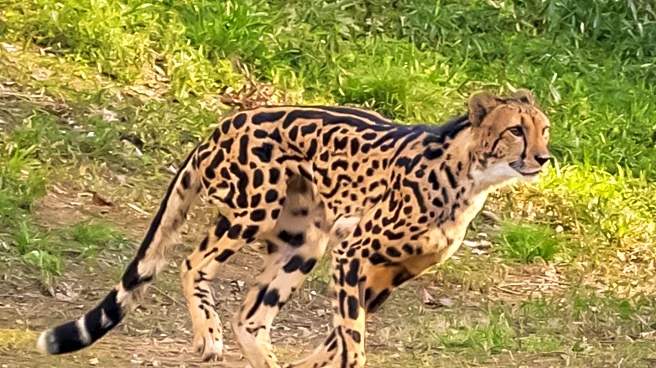What's Happening?
The Los Angeles City Department of Recreation and Parks is organizing a nature hike at Ken Malloy Harbor Regional Park in Harbor City. Scheduled for Saturday mornings, the hike will be guided by Ryan Kinzel, a junior urban ecologist with the department. Participants will explore the area around Machado Lake, which is home to over 300 species of migratory birds, including various heron species. The event is free, and while registration is available on Eventbrite, walk-ins are welcome. This initiative aims to engage the community with local wildlife and promote outdoor activities.
Why It's Important?
This event highlights the importance of urban green spaces and their role in biodiversity conservation. By offering guided hikes, the Los Angeles City Department of Recreation and Parks is fostering community engagement and environmental awareness. Participants have the opportunity to learn about local ecosystems and the diverse bird species that inhabit them. Such activities can enhance public appreciation for nature and encourage conservation efforts. Additionally, these hikes provide a recreational outlet that promotes physical health and well-being.
What's Next?
The department may continue to offer similar events to increase public participation and awareness of local wildlife. Future hikes could focus on different aspects of the park's ecosystem or expand to other parks in the area. Feedback from participants might influence the planning of subsequent events, potentially leading to more frequent or varied nature walks. The success of this initiative could inspire other cities to implement similar programs, contributing to broader environmental education and community engagement efforts.
Beyond the Headlines
The initiative reflects a growing trend towards urban ecological education and the integration of nature into city life. As urban areas expand, maintaining and promoting green spaces becomes crucial for ecological balance and community health. This event underscores the potential for parks to serve as educational platforms, fostering a deeper connection between residents and their natural surroundings. Long-term, such programs could influence urban planning and policy, prioritizing the preservation and enhancement of green spaces.










